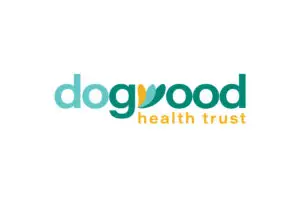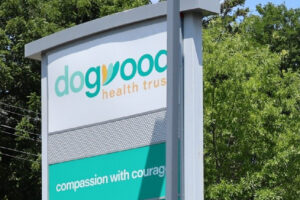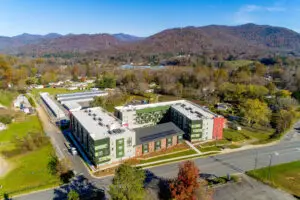Partners hope to catalyze 168 workforce units; anticipate breaking ground in 2021
Asheville, N.C. – Dogwood Health Trust will contribute $204,000 in grants, $100,000 in pre-development costs and up to $18.85 million in loan guarantees, letters of credit and equity contributions to support a collaborative effort among Housing Assistance Corporation, Gateway Wellness Foundation, McDowell County, McDowell Technical Community College, McDowell Economic Development Association, and the City of Marion to develop workforce housing in Marion, NC. Gateway Wellness Foundation will contribute land for this project that was gifted to them by McDowell County and McDowell Technical Community College, as well as up to an additional $500,000 short-term letter of credit. Housing Assistance Corporation will serve as the primary developer.
With this investment, Dogwood Health Trust kicks off its commitment to preserve and add to the available housing stock in the region.
The new housing complex will be located alongside the campus of McDowell Technical Community College in Marion and will provide 168 units through one, two and three-bedroom options, serving residents at 80 -120% of the average Area Median Income (AMI). The project is expected to generate nearly $20 million in economic activity, while utilizing local vendors, suppliers and trades both during construction and afterwards for ongoing property management.
“Affordable and workforce housing is in extremely short supply in our region, but opportunities for collaboration are not,” said George Renfro, Chair of Dogwood Health Trust’s Impact Investing Committee. “Our goal of catalyzing these and other units by the end of the year will only come to fruition through collaborations like this that build on the strengths, expertise and assets of local and regional partners.” Affordable housing is one of Dogwood’s four strategic priority areas that will drive Dogwood’s work for the next ten years. Dogwood’s priority areas include Housing, Education, Jobs, and Health & Wellness. When fully implemented, each strategic initiative will invest $5 to $15 million per year into the region.
According to the NC Housing Coalition, housing is considered affordable when it comprises no more than 30% of the family’s budget. When a family spends more than this on housing, they are cost-burdened. In a 2019 report, 21% of McDowell County households are cost-burdened. The partners of this project all share a commitment to addressing the disadvantages created by a lack of affordable housing. They note that a project like this will help both employees and employers who are at a disadvantage in recruitment and relocation efforts by boosting the available stock of workforce housing.
“For more than 30 years, the Housing Assistance Corporation has served Henderson County with a dedicated mission to provide safe and affordable housing opportunities to our residents in need,” said Housing Assistance Board Chair Hilton Swing. “It is with great excitement that we are able to collaborate with the McDowell County partners, Gateway Wellness Foundation and Dogwood Health Trust to serve residents across Western North Carolina.”
“I am very proud of this project because it shows what true partnership can achieve when we are all focused on the simple task of people coming together to help people in McDowell County,” said Norman Guthrie, Chairman of Gateway Wellness Foundation. “This type of positive collaboration is what makes McDowell County unique.”
“As Mayor of Marion, NC, I am very grateful to Dogwood Health Trust for its generous support in partnership that will bring a new complex of 168 units of workforce housing to Marion and McDowell County,” said Steve Little, Mayor of the City of Marion. “Nothing boosts a family more than a good quality place to live. This new housing will help the people here and will also help our businesses and industries who are looking for people to fill jobs.”
“The McDowell County Board of Commissioners believe that great things happen when organizations work together and we are grateful for the opportunity to partner with Dogwood Health Trust, Gateway Wellness Foundation, the City of Marion, McDowell Tech, and Housing Assistance Corporation in developing this new workforce housing project,” said David Walker, Chairman, McDowell County Board of Commissioners. “The people of McDowell County will have access to high-quality affordable housing thanks to all of these organizations working together for the greater good.”
“McDowell Technical Community College is excited to be a part of the collaborative efforts of McDowell County, the city of Marion and the Gateway Foundation, to bring much-needed housing to the area,” said Ryan Garrison, Interim President and Chief Financial Officer, McDowell Technical Community College. “This increase in housing will give individuals the opportunity to work and live in the county.”Dogwood Health Trust is a North Carolina nonprofit corporation with the sole purpose of
dramatically improving the health and well-being of all people and communities of Western North Carolina. Dogwood Health Trust was created from the net proceeds of the sale of Mission Hospital and focuses on innovative ways to address the many factors that contribute to overall health and wellness. To learn more, please visit www.dht.org.





